
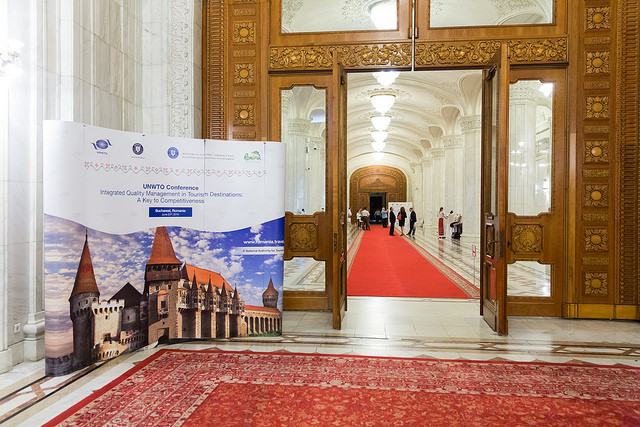
Quality Management key for the competitiveness of tourism destinations
Quality management indicators and processes are key tools for the competitiveness of tourism destinations concluded the UNWTO Conference on Quality Management held last week in Bucharest, Romania.
In that regard, participants to the conference called for an integrated approach to quality management as a priority in long-term strategic planning of Destination Management Organizations (DMOs) at national and sub-national levels.
An integrated quality management approach to destination management contributes to improving the image of the destination, enhances the legislative framework and minimizes operational challenges.
“We live in an increasingly competitive sector. Quality standards provide a framework to guide stakeholders to improve their operations and services along the whole tourism value chain so as to create a complete and positive tourism experience” said UNWTO Secretary-General, Taleb Rifai.
Costin Grigore Borc, Deputy Prime Minister and Minister of Economy, Commerce and Relations with the Business Environment of Romania said “the dynamic changes in the global tourism market require qualitative transformation of nearly every tourism segment within a destination. For tourism destinations to survive, trends that relate to a continuous improvement of the tourism supply quality need to be intensely tracked.”
“Tourism, multi-sectorial by nature, was and still is vulnerable to market turbulence and economic crises. However, it was able to withstand the global economic crisis more than most other sectors, to relaunch as few sectors have been able to, and to quickly recover from periods of temporary weakness” remarked Anca Pavel-Nedea, President of the National Tourism Authority of Romania at the opening of the conference.
The Conference focused on ‘destination quality’ as a step beyond ‘product/service quality’, and provided a showcase for sharing initiatives and good practices in quality management in coastal destinations, protected areas, spa/wellness destinations, urban destinations and cultural heritage destinations.
The 103rd UNWTO Executive Council Meeting held in Málaga last May approved the following definition of Quality of a Tourism Destination, as proposed by UNWTO’s Committee on Tourism and Competitiveness: “Quality of a Tourism Destination is the result of a process which implies the satisfaction of all tourism product and service needs, requirements and expectations of the consumer at an acceptable price, in conformity with mutually accepted contractual conditions and the implicit underlying factors such as safety and security, hygiene, accessibility, communication, infrastructure and public amenities and services. It also involves aspects of ethics, transparency and respect towards the human, natural and cultural environment”.
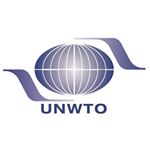
UNWTO to support Ukraine’s tourism development
UNWTO will work with the Government of Ukraine to support the development of its tourism sector. The cooperation will focus on the areas of tourism statistics, communications and capacity building within the Organization for tourism officials and graduates from the country’s tourism educational institutions. The initiatives were discussed between UNWTO Secretary-General Taleb Rifai and Vice-Prime Minister for Euro-Integration and Euro-Atlantic Integration Ivanna Klympush-Tsyntsadze at the sidelines of the Conference on ‘Destination Branding – keys to building a successful reputation’, organized by the Ministry of Economic Development and Trade of Ukraine in collaboration with UNWTO.
The Conference discussed the impact of technology on destination branding as well as the evolving roles of National Tourism Organizations (NTOs) and Destination Management Organizations (DMOs) in destination branding, in view of current technological and consumer changes. The Conference was preceded by a UNWTO Masterclass on Tourism Destination Branding, which brought together representatives from the various regions of Ukraine.
“Tourism is one of the best areas of investment and income generation,” said Ms Klympush-Tsyntsadze, opening the event.
Ms. Yuliya Klymenko, Deputy Minister of Economic Development and Trade, presented the ten issues the Government will look to address in developing Ukraine’s tourism sector, including the review of legislation, public/private sector partnerships, the creation of a network of regional tourism brands, improving statistics and the liberalization of visa regimes.
During the Conference, Ukraine announced the implementation of visa-upon-arrival measures for Chinese tourists, complementing similar visa facilitation initiatives taken earlier this year for visitors from Australia and New Zealand.
“UNWTO has long been advocating for travel facilitation as a means to promote economic growth through tourism. We welcome very much the decision of the Government of Ukraine to concede visa upon arrival to Chinese tourists, as this is an example of its vision and commitment to tourism development,” said Mr. Rifai. “China is the world’s top source market, with US$ 292 billion spent on travelling abroad last year, and we trust this measure will yield significant benefits to the economy of Ukraine,” he added.
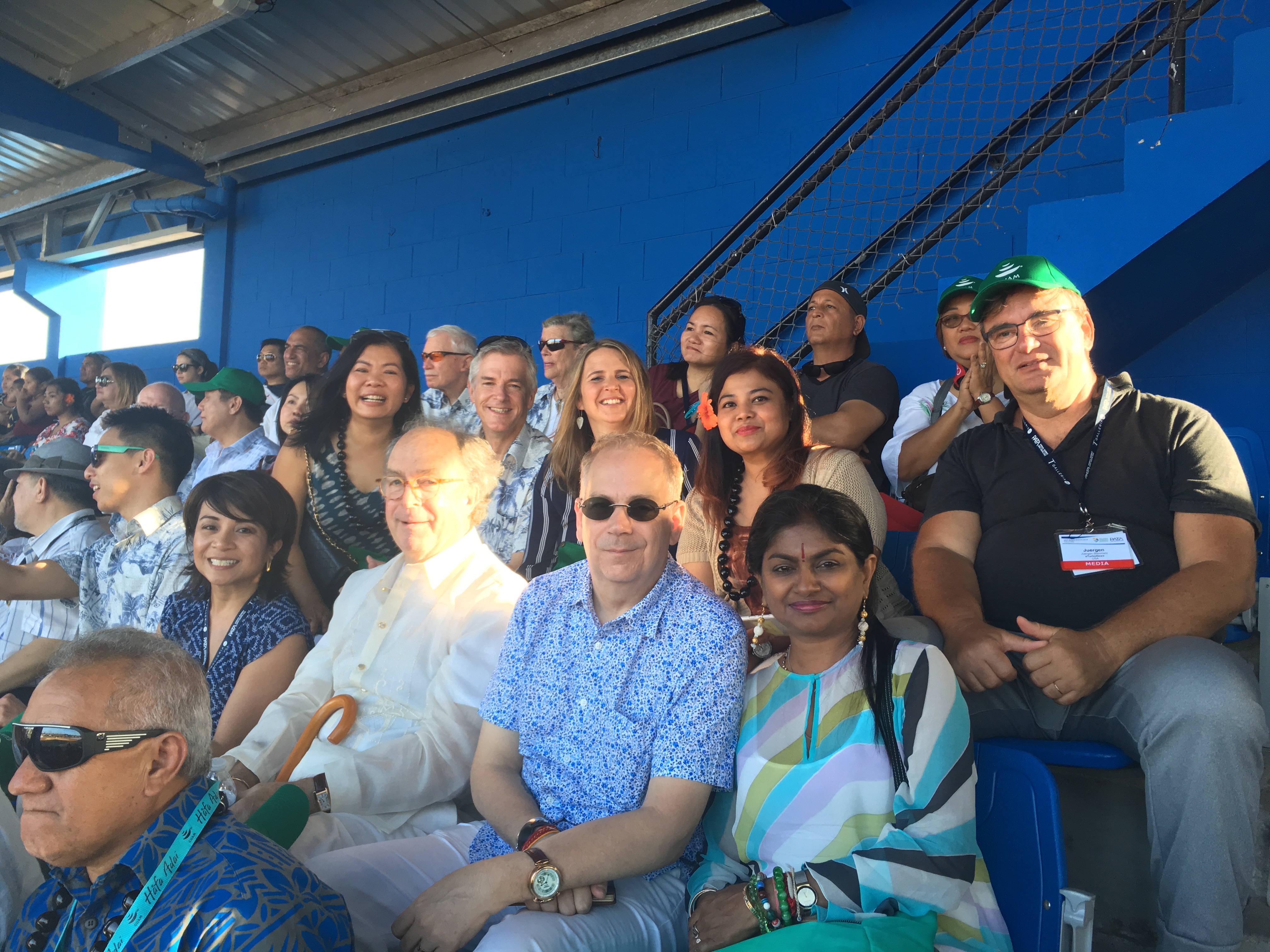
PATA CEO Dr. Mario Hardy: The Middle East is part of the Pacific Asia Tourism Region
Under the leadership of the Pacific Asia Travel Association (PATA) CEO Dr. Mario Hardy, the PATA as a travel and tourism organization has gained importance, leadership and reach. PATA is spreading its reach on a global scale. It appears the organization is now a world player in the global travel and tourism industry.
eTN publisher Juergen Steinmetz asked the PATA CEO if including Gulf destinations would compete with PATA’s traditional market in the Pacific Asia region
Mr. Hardy told eTN: “All destinations worldwide are welcomed to join PATA to gain insights from the fastest-growing travel region in the world. We are very much open to the idea of hosting a PATA event outside of our main region and sharing the knowledge and expertise of our Asian-based members.”
In the eyes of PATA The Middle East is now Asia Pacific. Mario Hardy explained: “Arguably every destination is competing with its neighbor, close or distant. You have to remember that PATA is about the promotion of tourism to/from and within the Pacific Asia region. The ‘from’ part had been less of a focus in the past, but is taking a greater importance due to fast growth of outbound tourism from Asia. Also PATA’s region starts in Istanbul all the way to South America [inclusive]. The Middle East is part of our region.”
Just last week, the United Arab Emirates(UAE), Ras Al Khaimah, joined PATA as a destination member.
At the recently successfully concluded PATA Summit in Guam,USA the minister of Culture and Tourism from the Seychelles, and island nation in the Indian Ocean, was the keynote speaker at the event.
eTN publisher Juergen Steinmetz asked Mario In taking on countries and regions with a lot of money, but questionable human rights records and discrimination, including destinations that criminalize LGBT behavior, and taking this in content with the recent attack in Orlando – wouldn’t this somehow generate a conflict?
Mario: Our partnership with IGLTA is founded on the basis that we want to spread a better understanding of the LGBT traveling community. It is about sharing knowledge about the regions that we cover with the IGLTA members and for IGLTA to share knowledge about their community with our members.”
Mario Hardy went on to say: “Every day there are terrible situations happening in the world that touches known destinations or lesser ones. There is too much horror in the world to necessarily communicate about them every single time. We may not necessarily issue blanket statements all the time, but it doesn’t mean that in private we don’t communicate our thoughts and prayers with the people touched. We have been in touch with our friends at IGLTA and personally shared our thoughts and regrets on social media where appropriate.
eTN: What type of sponsorship and additional member gain is expected for PATA to accept Emirates in the UAE and other Gulf destinations within your organization?
Mario Hardy: Membership fees for Ras Al Khama are they the same level as other Asian destination members, as the Middle East is part of the PATA region. As mentioned previously, our focus is the promotion of to/from and within the Pacific Asia region. Gaining new members from other regions helps increase our network and opportunities for our members to get better insights into the region and develop additional business opportunities.
JUERGEN T STEINMETZ
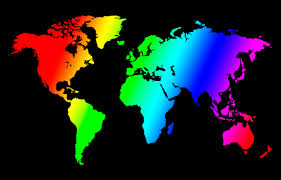
Attack on LGBT Tourism: Why UNWTO, WTTC, PATA and other tourism leaders are slow to condemn?
US President Obama condemned the terror attack in Orlando and invited the nation to come together, so did leaders in the United States including governors, mayors, LGBT community leaders, spiritual leaders, including Islamic clerics. Except the Republican party presidential nominee Donald Trump used this incident as an attack on President Obama and demanded his resignation.
International heads of states are slow in acknowledging the terror attack.
The murders at the gay nightclub in Orlando, Florida also was a clear attack on the global travel and tourism industry, but with a twist. This time it hit a minority – the Lesbian, Gay, Transgender and Bisexuals, known as LGBT.
LGBT represents approximately 10 percent of all global travelers. Considering a billion people travel (UNWTO) LGBT would represent about 100 million people. LGBT travelers usually spend more money on vacation, often travel in low season, but they represent a minority in the eyes of many destinations not ready to welcome them yet with open arms.
After eTN published the original version of this article saying: “Usually leaders representing our global tourism organizations like the United Nations World Tourism Organization (UNWTO), the World Travel and Tourism Council (WTTC) are very quick issuing press releases condemning terror attacks. Not this time.”
UNWTO did now issue a statement strongly condemning the Florida attack. The statement said: UNWTO expresses its heartfelt condolences to the families and friends of the victims, to the American people and the LGBT community worldwide in this difficult moment. The UN Secretary General went on to say and related his full solidarity with the people and the Government of United States of America.” A full solidarity with the LGBT Travel and Tourism community and industry was not yet mentioned, but even the mentioning of LGBT community was an important step by UNWTO.
PATA, SKAL,The Caribbean Tourism Organization, Vanilla Island Organization, RETOSA, or the South Pacific Tourism Organizaton had not yet responded to the attack. No word from IATA, CLIA, ICAO, ACI, the World Economic Forum, just to name some more.
WTTC as the self announced leader of the private global travel industry still has no official position on LGBT tourism. The United Nations World Tourism Organization (UNWTO) has no official stand as well.
Both organization had invested in studies, but when it comes giving LGBT a voice at their summits and conferences, they usually don’t like to touch this “minority”. It’s different with women in travel, both organizations are outspoken and include intense discussions at their events about the role of women in tourism.
Wouldn’t it be time for global travel and tourism industry leaders and the associations they represent to take a stand not only against terror, but a stand for LGBT tourism?
Perhaps one has to follow what money is funding UNWTO and WTTC:
According to gay publication ManAboutWorld and a study supported by Marriott Hotels, the top 5 most dangerous destinations for LGBT travelers are:
-Singapore — Up to two years in jail
-United Arab Emirates — Various punishments, possibly a death sentence.
-Nigeria — Death penalty for men
-Iran — Death penalty
-Saudi Arabia — Banishment, whipping, and death by public stoning
Hopefully this article will trigger an avalanche of statements by our leaders to stand by the LGBT Travel and Tourism Industry and against terror. UNWTO made a soft approach today, what is commendable.

UNWTO strongly condemns the attack in Orlando
UNWTO is deeply shocked by the tragic attack perpetrated in Orlando, USA.
On the behalf of the international tourism community, UNWTO expresses its heartfelt condolences to the families and friends of the victims, to the American people and the LGBT community worldwide in this difficult moment.
“On the behalf of the international tourism community, UNWTO conveys its heartfelt condolences to the families and friends of the victims and expresses its full solidarity with the people and the Government of United States of America” said UNWTO Secretary-General, Taleb Rifai.
“This hideous crime reminds us once again we are facing a global threat and that we need to more than ever stay together, strengthen our cooperation and continue to fight prejudice” he added.
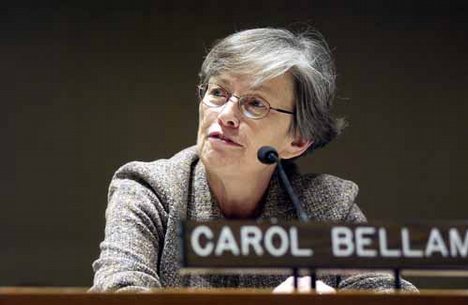
Carol Bellam, Chair of the UNWTO Children’s Network has a message to share
Carol Bellam is chair of the UNWTO Children’s Network
eTN publisher Juergen T Steinmetz had represented the global media on this network for many years. Carol is explaining the role of our Network in addressing the pressing challenges of child protection in tourism on this video.
The video was shot on the occasion of the 17th meeting of the World Committee on Tourism Ethics held in April in Madrid
Carol Bellamy briefed the Ethics Committee oat ITB 2016 and expressed the need to harness the great potential of expertise and best practices championed by the members of the ExCom.
The findings of the Global Study were also conveyed to the Ethics Committee members so they would be able to engage into more research-based advocacy within their respective sectors.
The facts and figures outlined in the Global Study are currently being shared with tourism ministers globally through UNWTO Regional Commission meetings, which should hopefully instigate political decision makers to undertake more concrete preventive actions within their countries.
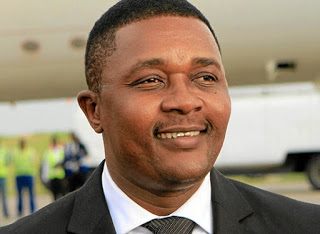
UNWTO SG Post, not a peer competition for a job but a global deployment.” Dr Mzembi, Zimbabwe Minister of Tourism
On April 1, Zimbabwe announced that it was nominating Tourism Minister Eng Dr Walter Mzembi ( WM) for the seat of the United Nations World Tourism Organization Secretary-General. Minister Mzembi has hit the campaign trail for the global position and tells The Herald Political Editor Tichaona Zindoga (TZ) that if he lands the post, which he says is possible, it will be Zimbabwe’s highest diplomatic coup coming against a backdrop of negativity and sanctions against the country stemming from certain powerful pockets in the world. These are the perspectives they shared yesterday:
TZ: You are eyeing the post of SG of the UNWTO which falls vacant next year and have the support of Zimbabwe and Sadc. What does this position mean for the country?
WM: I have mentioned before that if we succeed, it will be Zimbabwe’s highest and most prestigious diplomatic deployment. In the decade leading to 2009, Zimbabwe suffered some diplomatic setbacks after Article 96 of the ACP-EU Cotonou Partnership Agreement was invoked, resulting in what we ordinarily refer to as sanctions, which were exacerbated by another complementary regime of sanctions in the form of ZIDERA from the USA.
A re-engagement drive by the then inclusive Government in the five years leading to 2013 did not quite succeed in shedding off the perceived “bad boy” image so viciously and deceptively orchestrated by global mainstream media, resulting in the decimation of our brand equity and its competitiveness.
Notwithstanding, the revocation of Article 96 in November 2014 and the seeming new found international goodwill for the country, its own re-engagement with multilateral institutions, the journey to full engagement is not yet complete and competing for this post is our own sectoral contribution to that effort, which will see Zimbabwe claiming its pride of place in the international family of countries.
TZ: You have the backing of SADC, but there are some hostile forces out there. We recall some countries did not want Zimbabwe to host the 2013, 20th Session of the UNWTO General Assembly. How are you going to go past that hurdle, and just what do you have to offer to the whole world if you take the helm in light of global issues of this day?
WM: “The Nazareth factor ! ”, notwithstanding, we still hosted arguably “the most successful General Assembly in the history of General Assemblies” according to the UNWTO Secretary-General Dr Taleb Rifai, however this factor still continues to haunt us as we begin the exploratory phase of our campaign for the Secretary-General post and is the often repeated line that I have to respond to: “Can anything good come out of Zimbabwe?”
In John 1:46, when Phillip had to answer a similar question from Nathanael, his brief answer was “come and see”. The world came and saw Zimbabwe in August 2013, the New York Times in its February 2015 “52 Global must Visit Report” ranked Zimbabwe number 14, with the addendum “once avoided now a must see”. This is the brand that is deploying me to compete, and Southern African Development Community (SADC) has endorsed my candidacy.
Africa, which has tested my leadership through my chairmanship of the UNWTO Regional Commission for Africa (CAF) from 2013 to 2015, and unanimously renewing my mandate for another two-year term to 2017, may not have difficulties in endorsing my candidature.
Given the adversities that are confronting global tourism today and I list here a few: tourism and security, climate change, biodiversity terrorism, high taxation, standardisation, child sexual abuse, pandemics, and political conditions, there is no better candidate given our history that I have alluded to already, who could demonstrate how to turn adversity into an opportunity to the extent that I have done to Zimbabwe tourism, now setting the agenda in global tourism with a resume of tourism positions and accolades too numerous to mention since 2009. There is not a single country in the world without historical baggage, and that cannot be used against candidates. A quick analysis of current UN and international systems deployments will confirm that the majority of them are not from the world’s “perfect” countries. There are no saint countries.
TZ: Out of interest, our readers would like to know who else are your potential contenders?
WM: My country nominated me after clearance with the President and subsequently by Sadc.
To be a candidate you need country nomination and I am not aware of any nominated candidates at this stage. What I am aware of are peer expressions of interests and we live to see the day when they will transform into country nominations, and that day may not be too far off, as the formal process of accepting candidatures will commence at the next 104th Executive Council meeting. Let me conclude by saying if I was responding to a routine job vacancy I would confidently say I am most qualified on my own merit however this is an elective position with geopolitical considerations, therefore endorsements are key.
I must hasten to say, this is not a competition for a job but a deployment and the endorsements that I am seeking speaks to answering geopolitical aspirations, Africa in the first instance and what global tourism we want to see going forward.
However, akin to all electoral competitions, whatever candidature emerges, should consider Zimbabwe, Sadc and hopefully Africa’s candidate a serious proposition.
TZ: You have been travelling around lately, what is the vibe coming from your various meetings?
WM: There is a very positive acceptance of my statecraft and bureaucratic competence for this post. Remember this is an elective international civil servant position, which requires competent skills.
I have been around long enough to know where to take the organisation in fulfilling members’ aspirations and expectations.
The pedigree of my candidature goes beyond just advocacy, marketing and promotion of global tourism to international deal broking and statesmanship, which are the hallmarks needed to confront contemporary challenges I referred to already.
TZ: We are already into the second half of 2016. What do you need to do in the remaining period to ensure that the road is clear?
WM: Sell the vision. I draw inspiration from the Christian Bible’s Habakkuk 2:2 “Write the vision, and make it plain upon tables, that he may run, that readeth it”.
TZ: Let’s come back home. How is the tourism industry faring?
WM: Tourism has a projected sectoral growth of 4,1 percent ahead of mining, manufacturing and agriculture and has been performing steadily on a growth trajectory since 2009 and contributing an average of 10 percent to GDP.
It could do much more on the back of enabling policies and I cite here urgent ones that need redress, the behaviour of currencies, intelligent taxation, destination accessibility and connectivity, a friendly visa regime, increased tourism asset base and a better packaging of brand Zimbabwe.
TZ: In other countries tourism is a huge and potentially an economic lifeline, can the same be said of Zimbabwe?
WM: We are no exception, however, when you situate our, and Africa’s performance within the context of global tourism, you begin to see how my minutely we are doing. Global tourism is generating $1,5 trillion, contributes 6 percent in exports, employ 288 million from 1,2 billion arrivals.
Africa’s cross cutting market share is a mere 3-5 percent, and in fact, our continent according to the latest global tourism barometer, is the only region that registered decline in arrivals performance at minus 3 percent.
Zimbabwe has a decimalised share of global performance, no different from any other African country except South Africa. It is this unequal growth and performance that is partly motivating me and has been understood by Sadc that it is an anomaly that we must correct.
TZ: What is the situation elsewhere?
WM: Europe has been leading, claiming almost 60 percent market share. However, there are threats to this performance arising from terrorism, which has marked tourism as a soft target, creating unprecedented insecurity in the mind of the traveller, going forward this is a challenge that demands a global response as none of us are safe from this scourge and attack on civilisation.
I have my thoughts on it, which include complementing hard power with soft power and harnessing the power of ICT to create safe, seamless and secure travel.
Migration, seemingly an undesirable buy-product of instability, is another phenomenon which is threatening what until now was a legacy example of openness in the Schengen. This world benchmark could very easily fold and re-create barriers to seamless travel if the current temporary panic goes unchecked. The future of the Euro needs close monitoring as it has a bearing on the tourism performance of the region.
South Asia and the Pacific is the growth pole not just for itself but an emerging source market for the world. The world should start planning for 600 million outbound travellers from China by year 2020.
The region has its insecurities similar to the Americas, and these include natural disasters and climate change, and in the definition of tourism and security as this debate continues, it has to capture them for mitigation and adaptation.
The Middle East, traditionally as an oil economy, is confounding its watchers as tourism surpasses the significance of oil, which hitherto has largely anchored livelihoods. Serious diversification is taking place although the gains are sometimes slowed down by insecurities.
The above notwithstanding, we have welcomed the designation of 2017 as the International Year of Sustainable Tourism for Development and combined with the SDGs particularly those akin to tourism, Goals 8, 12 and 14, the future for global tourism looks very bright.
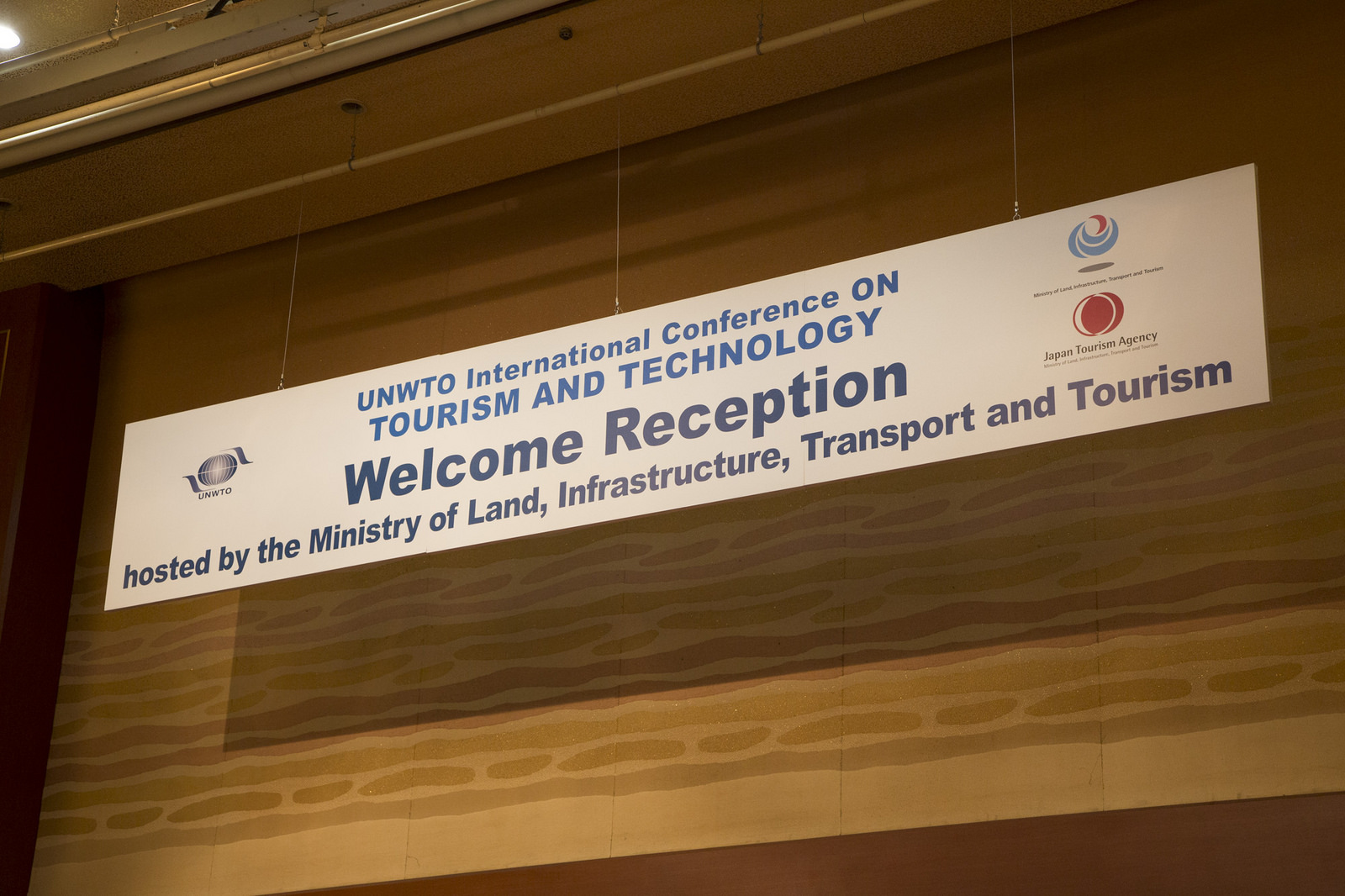
UNWTO addresses the impact of new technologies on the tourism sector in Japan
Over 400 participants from 26 countries gathered in the city of Nara, Japan, to discuss the impact that new technologies are having on the tourism sector and how these can help the sector to further develop at the UNWTO International Conference on Tourism and Technology. It was conducted within the framework of the 28th Joint Meeting of the UNWTO Commission for East Asia and the Pacific and South Asia from 1-4 June 2016.
The 28th Joint Commission’s meeting discussed UNWTO’s Programme of Work for Asia and the Pacific, the link between tourism and security, and the ethical approach of the sector. The Conference was the first of its kind organized by UNWTO to highlight the linkage between new technology and tourism in the Asia-Pacific region in order to examine the current emerging technologies that are of primary relevance to the tourism sector.
As summarised by Akihiko Tamura, Commissioner of the Japan Tourism Agency of the Ministry of Land, Infrastructure, Transport and Tourism of Japan at the Opening: “Our work embraces not only tourism, but also transportation and infrastructure policies that require the latest advanced technologies. Finding out how to raise travelers’ satisfaction levels through various experiences and activities during their travels is a challenging but crucial task for us.”
To this, the UNWTO Secretary-General Taleb Rifai added that “Two major revolutions have marked the last decades: the travel revolution, which has positioned tourism as a fundamental element of our lives, and the boom of new technologies that have changed the game for many sectors including tourism. In both revolutions, nations from Asia and the Pacific have emerged as leaders.”
As estimated by UNWTO, 2030 will witness 1.8 billion international tourists travelling around the world. Of those, 535 million international travelers will visit Asia and the Pacific – a figure which almost doubles the current number of inbound travel to the region. In this framework of continuous growth, innovations brought to the tourism field by technological advances were identified during the Conference as opportunities to enhance the sector.
In this regard, UNWTO Secretary-General Taleb Rifai underlined that the priority areas of the Organization such as making travel safer and more seamless through processes such as the e-visa, improving the quality and competitiveness of destinations and businesses, can be materialized in a better manner through innovation and technology.
Additional topics such as the use of ICTs within the tourism sector, consumer trends and new business models were also debated in the sessions. Mario Hardy, CEO of the Pacific Asia Travel Association (PATA), highlighted the new innovations that are changing the travel industry including crowdsourcing, the sharing economy, 3D printing and wearables, among others.
On the future impact of new technologies in the tourism sector, Yuri Furusawa, Vice-Commissioner of the Japan Tourism Agency, mentioned that “Technological progress is enabling people to travel more easily, and we now live in an era in which, each year, 1.2 billion people enjoy overseas trips. Travel encourages direct human and cultural exchange, creating a basis for people to learn more about the importance of each other’s cultures and lives, and to live in harmony. Technology has made an immeasurable contribution to such developments.”
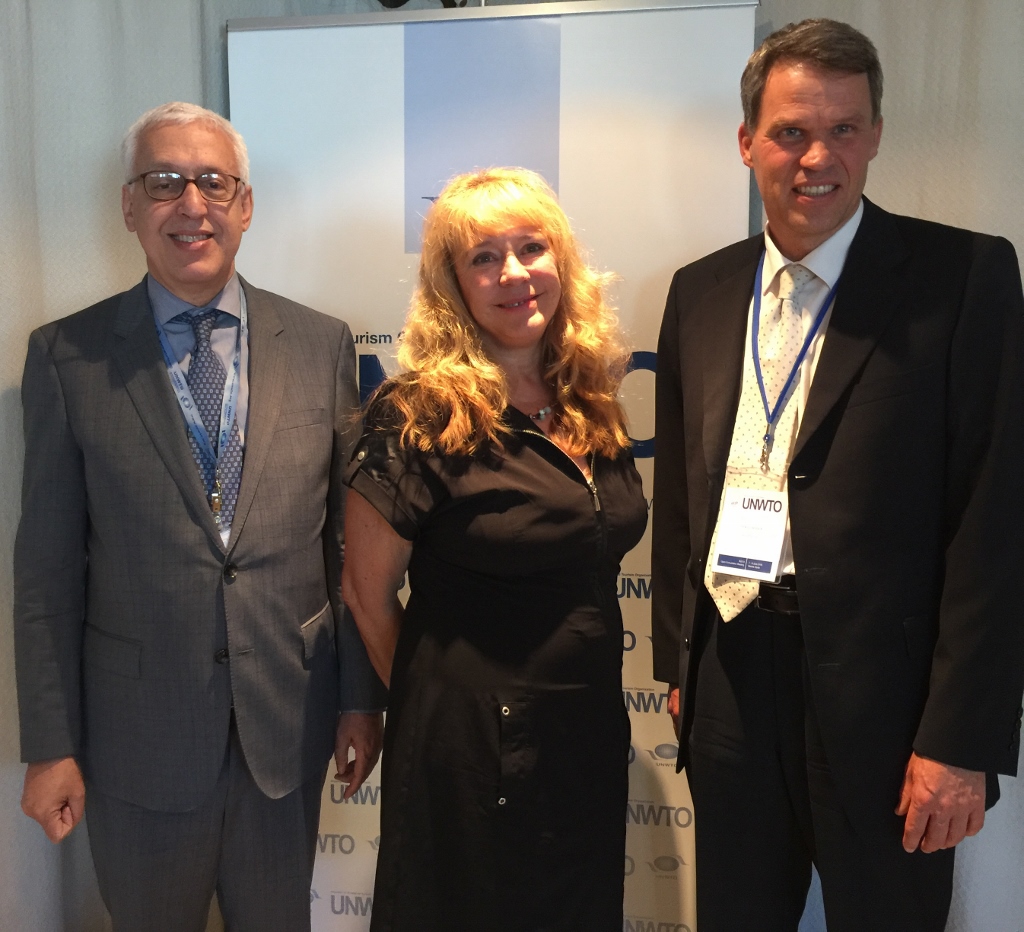
Symposium on UNWTO Sustainable Tourism Observatories nets new knowledge
With this Open Consultation Meeting, UNWTO sought to engage, share and discuss views, experiences and opportunities in measuring, monitoring and assessing tourism impacts at the destination level in preparation of the 2017 International Year of Sustainable Tourism for Development and to advance the agenda of sustainable and resilient tourism development.
Opening with a dynamic keynote by Executive Director Dr. Marcio Favilla who focused on new initiatives utilizing new means of data collection and analyses. Dr. Xu Honggang led the “Experiences from the Observatories” session sharing the wealth of experience which the team from Sun Yat-Sen University in China collected when they developed the first and to this day largest network of tourism observatories with UNWTO.
Other speakers included Rosa Ruvalcaba Benitez and Claudia Betancourt, associated with Guanajuato Tourism Observatory which has had great success in involving local stakeholders including 25 local organizations in the data gathering processes.
Michael Dodds, who directs the Regional Tourism Committee of Brittany France – an area which has done a brilliant job of attaining strong brand recognition discussed exploiting their niche markets such as sailing and cycling, both of which are notably limited carbon activities.
Roger Lang CEO of Predicta Cognitive Commerce Cloud beamed in to discuss how Silicon Valley ingenuity and UNWTO can accelerate the growth of sustainable travel.
The Symposium segued into discussions of the progress on indicators and measurement… initiatives and instruments, presentations on embracing big data, monitoring visitor satisfaction for effective destination strategies, analyzing mobile device info, each point presented by thought leaders from companies such as Amadeus and ReviewPro.
The conference concluded June 8 with an analysis of three aspects of Sustainable Travel: the Economic dimension, the Socio/Cultural dimension (an area several of the new Observatories being developed are planning to focus on including the recently formed Coalition to Observe and Advance Sustainable Tourism in Sonoma, California) and the Environmental aspect chaired by Dr. Ted Manning president of Tourisk,inc who brought a breadth of experience from his background consulting in destinations worldwide.
The host of the conference, Dr. Dirk Glaesser, director of the Sustainable Development Programme, closed saying that the goal is to “make Observatories around the world an absolutely normal thing”.
PAMELA LANIER
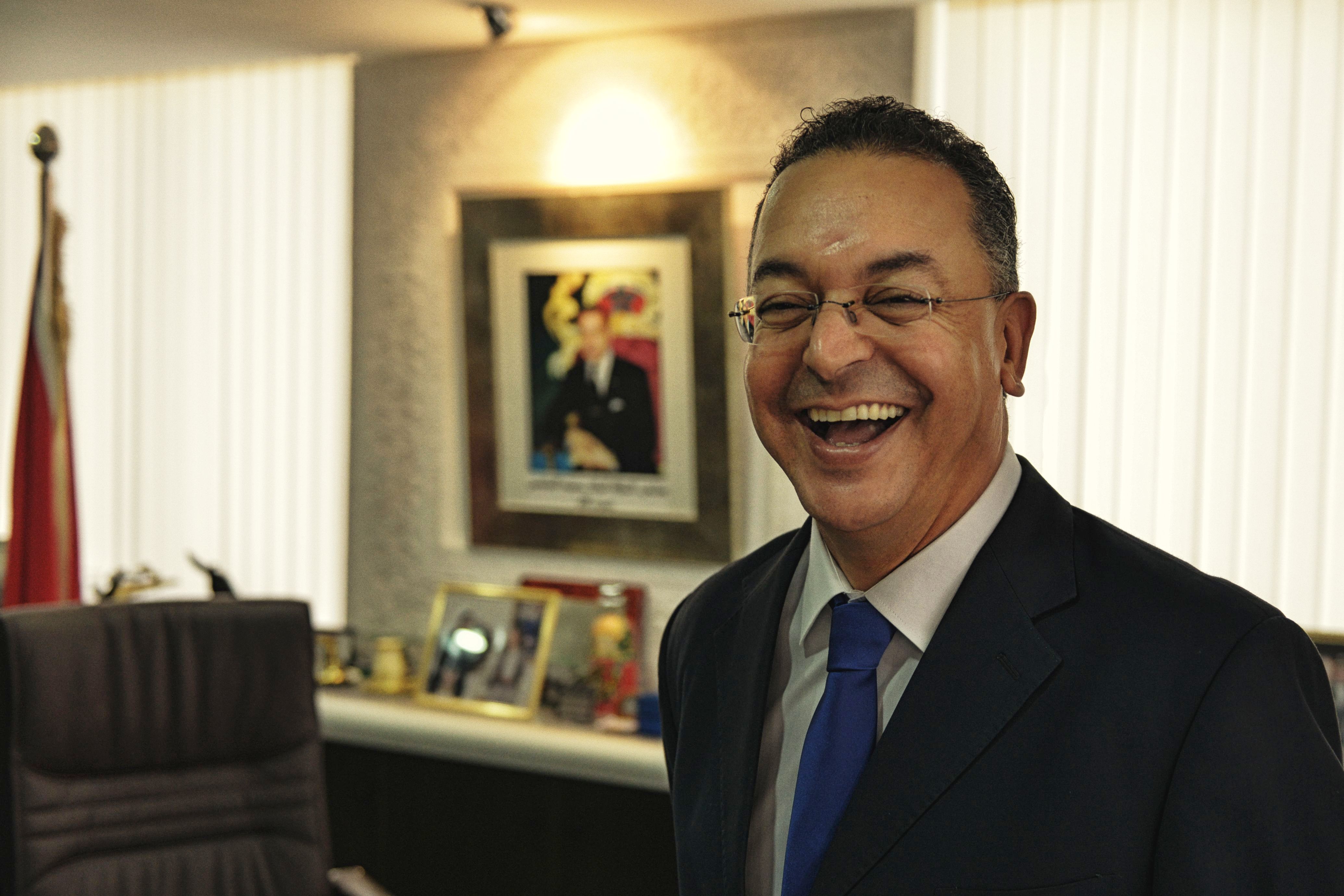
Morocco’s Minister of Tourism named Travel Personality of the Year
At a ceremony in Dubai attended by travel and tourism industry professionals and representatives from the local Arab community as well as the international media, Morocco’s Minister of Tourism, Mr. Lahcen Haddad, was named the 2015 “Tourism Personality of the Year.”
The minister received the award from the Arab Center for Tourist Media as part of the 8th edition of tourist trophies awarded annually by the center since 2008.
During the ceremony, Mr. Hussein, President of the Arab Center for Tourist Media, said that the consecration of Mr. Haddad is “to honor the minister in recognition of his experience and his efforts for the development of Arabic and local tourism.” He also explained that the objective of these awards is to “support and encourage the efforts and achievements to develop this sector in the Arab countries, and to boost tourist flows in Arab countries, and encourage the use of quality of services.
In his address, Mr. Haddad recalled the place and positioning of Morocco as a destination in the world tourism sphere. “This place embodies the maturity of the Moroccan destination and reaffirms its relevance.”
Mr. Haddad was reassured about the future of world tourism, adding that the tourism industry remains important, especially as the trip culture is increasingly rooted in travel habits. He said that tourism is a major factor of global economic change which is evolving more towards the services entertainment industry. Mr. Haddad added that the challenge for the coming years is to mobilize policymakers to focus on the innovations of the tourism trade.
The selection committee from the Arab Center for Tourist Media announced that the awarding of the prize of “Tourism Personality of the Year” going to Mr. Lahcen Haddad, was the result of him receiving a score of 4,569 votes. The mode of voting for this edition was done by electronic vote with the participation of 122 AEs listed in 23 categories representing 18 Arab countries.
